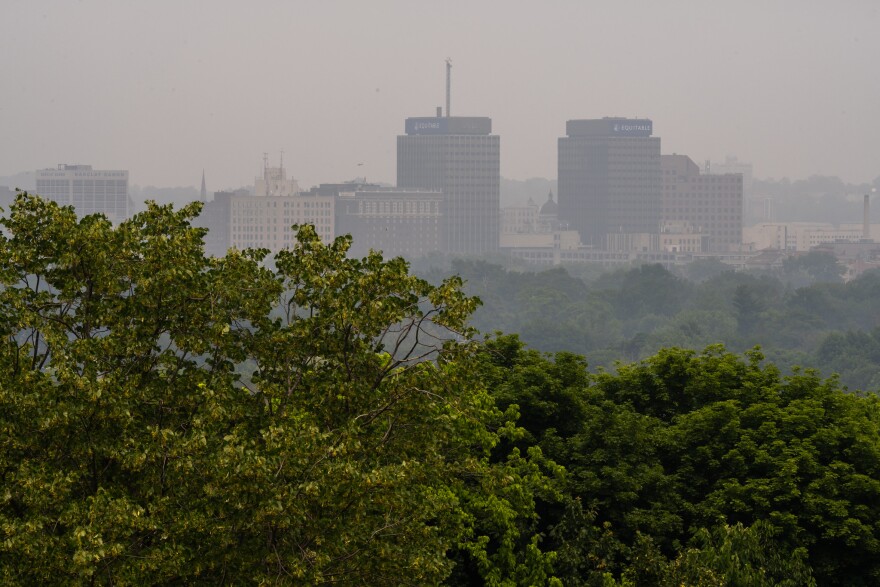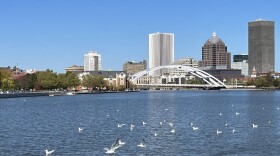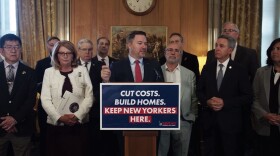New York state environmental officials are once again issuing air quality warnings in most parts of the state through Tuesday because of the smoke from widespread Canadian wildfires.
Gov. Kathy Hochul spoke about the latest wave of smoky air at an event Monday inside the Baseball Hall of Fame in Cooperstown. She was supposed to hold the event outside to announce the completion of renovations at Doubleday Field, but she said the toxins in the air were spiking.
“We are experiencing very compromised air quality at this moment,” Hochul told the audience. “Since I arrived here, the air quality in Cooperstown went from 71 to 136.”
Anything above 100 is considered unhealthy for people with underlying health conditions, like asthma or heart disease. When the numbers reach 150 or higher, then the air is considered unhealthy for everyone.
It’s the third time since early June that warnings have been issued.
“It's been an extraordinary summer,” said Hochul’s environmental commissioner, Basil Seggos.
Seggos said this week’s air quality alerts are not likely to be the last.
“Unlike last time when we were having smoke from Quebec, and to some degree Ontario, this smoke is from western Canada, the fires in western Canada,” Seggos said. “It's 25 million acres burning across Canada, really an unprecedented number. And most of those fires are, I would say, out of control.”
Seggos said those fires are fueled by climate change, with above-average temperatures and below-average amounts of rainfall.
Dr. James McDonald, the state’s health commissioner, recommended that people stay on top of the potential dangers from the smoky air by monitoring their weather apps on their cellphones, including the federal EPA’s AirNow app, then plan accordingly. Precautions should include wearing an N95 or KN95 mask outside.
“I think it's important for New Yorkers to listen to their bodies,” McDonald said. “If you go outside, and the air quality index is high, and you’re coughing, eyes are burning, your nose is running, that's a time to say, ‘Hey, I need to put back on my N95 mask, or I need to go inside into, you know, a safer space.’”
Hochul said if the air quality levels rise to 200 or greater, New Yorkers can expect an alert on their cellphones, warning them of the potential danger.








